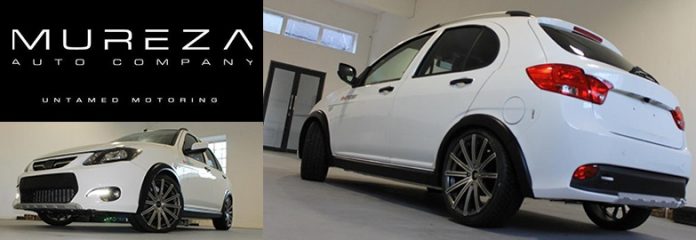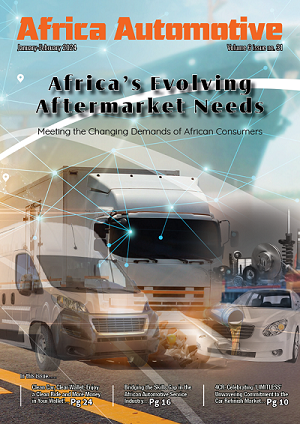For centuries, African countries have struggled to produce competitive vehicle brands. As such, billions of dollars are spent annually in importing used cars, mostly from Asian giants such as China and Japan.
But Zimbabwe-born and South Africa-based car designer, Tatenda Mungofa is on a mission to change the face of automotive manufacturing on the continent. The car brand Mureza Auto Company, headquartered in South Africa is set to start assembling its vehicle, Prim8 (pronounced Primate) re-badged from Iran’s SAIPA Quick at Willowvale Motor Industries (WMI) assembly plant in Harare this new year.
Mureza-Zimbabwe events co-ordinator and public relations officer, Chidochemoyo Nemhara, said that the vehicle’s selling price will be US$13 500 and the auto company would aim to manufacture 100 cars per month.
“We are undoubtedly going to start assembling our vehicles named Prim8 (pictured) at Willowvale Motor Industries (WMI) assembly this year. Our components are manufactured in Iran and South Africa, but Mureza’s ultimate objective is to design and manufacture vehicles for Africans. We are targeting to produce 100 units per month and the vehicles’ selling price will be US$13 500 each. Arrangements for Zimbabwe dollar purchases will be made,” she said.
Mureza Prim8
The Prim8 features a 1,5-litre naturally-aspirated petrol engine, producing 87 kW. As one would expect from a hatchback of its size, the vehicle is front-wheel drive. The best trim option for the local range will include keyless entry, a seven-inch touchscreen infotainment system, SatNav, rear-view camera, parking sensors, and air-conditioning.
Motorists will also get electronic stability control, tyre-pressure monitoring, a powered driver’s seat, and two airbags.
Nemhara said although the current economic situation was unfavorable, Mureza’s efforts would help to create employment and promote investment.
“Of course, economic conditions are not favourable for some businesses to thrive, but establishing a plant here would in a way promote job creation for the locals and it’s a form of the much-needed investment. It means value creation within the market and it gives us ground to establish and train local labour force as well as to promote regional trade,” she said.
Nemhara was also confident that their brand would rise to the limelight despite that the market is currently dominated by well-established international brands.
“We are not worried much about how our brand will perform on the market, but we aim to solve transport challenges in Africa by creating highly competitive and affordable vehicles that suit the continent’s conditions. That means a reduction of grey imports and the endorsement of the local value chain. Just as the flag rises, eventually Mureza will rise,” she said.
Mungofa said: “We realised that Africa is importing many goods, yet it has the resources to manufacture its own products. “There is also a huge youthful population seeking employment. Job opportunities are scarce, hence as we design and make our own cars, we will create employment.”
The journey towards Mureza is a long haul dating back to 2007. A team of professional car designers, including Mungofa as well as co-owners, Pheladi Chiloane and Thulisa Sosibo, are behind the company.
The team has been working with other consultants and vehicle component suppliers to develop prototypes. After years of hard work, Mureza clinched a joint venture deal with Iranian car manufacturer, SAIPA Group. The deal entails Mureza to assemble and distribute the Mureza Prim8, while SAIPA provides technical support.
“We are now in the process of setting up our first production plant in South Africa,” said Mungofa. “This is only the beginning, we are developing a regional manufacturing plan. We anticipate our presence in at least four countries in the SADC region. “In Zimbabwe, we have engaged a major car assembly firm.”
The Mureza Prim8 vehicles come with durable suspension and huge cabins, which are customised for the African terrain. The vehicles will run on 1,3-litre and 1,5- litre petrol engines.
They will also come with modern luxury features like adaptive cruise control, satellite navigation, bluetooth, touch-screen infotainment system, reverse camera and steering controls, among others. Other models in the pipeline include a truck and a Sports Utility Vehicle (SUV). Mungofa said the company intends to utilise the region’s mineral resources.
“All these vehicles will carry features that are unique to Africa and will be made with materials from the continent,” said Mungofa. “Some countries have no access to international markets and therefore fail to extract economic value from their idle resources,” he said. “Cowhides make leather, then there is rubber and cotton. Sand makes glass. These raw materials are all important.”
Local car battery manufacturers could also benefit from the deal.
“Making cars in the region will gradually allow different countries to be part of the value chain. As they supply the various raw materials, we will have a more productive economy,” said Mungofa. “By operating in pre-existing factories in strategic locations, we believe this will stimulate economic activity and generate downstream benefits.”
In terms of transporting raw materials, Mungofa said: “Rail infrastructure is key in moving raw materials and finished products. This project might help revive freight train services in Zimbabwe.”
He said vehicles produced in Zimbabwe will be for both the local and export markets. However, the Mureza story is not all rosy. Many potential partners did not believe in the idea.
“There were some challenges in Zimbabwe between 2007 to 2012, which made it nearly impossible to conduct basic research,” said Mungofa. “Asking for quotations from component suppliers was met with serious ridicule. When we told them that we wanted to build our own car, they thought it was a joke.
“In South Africa, some component manufacturers would call us after hours to provide the necessary information in confidence.” Despite the negative encounters, the company persisted, quietly developing its product.
The current vehicle assemblers in Zimbabwe are WMI, Quest Motors, Deven Engineering, and AVM Africa.
Source: Southern Times





